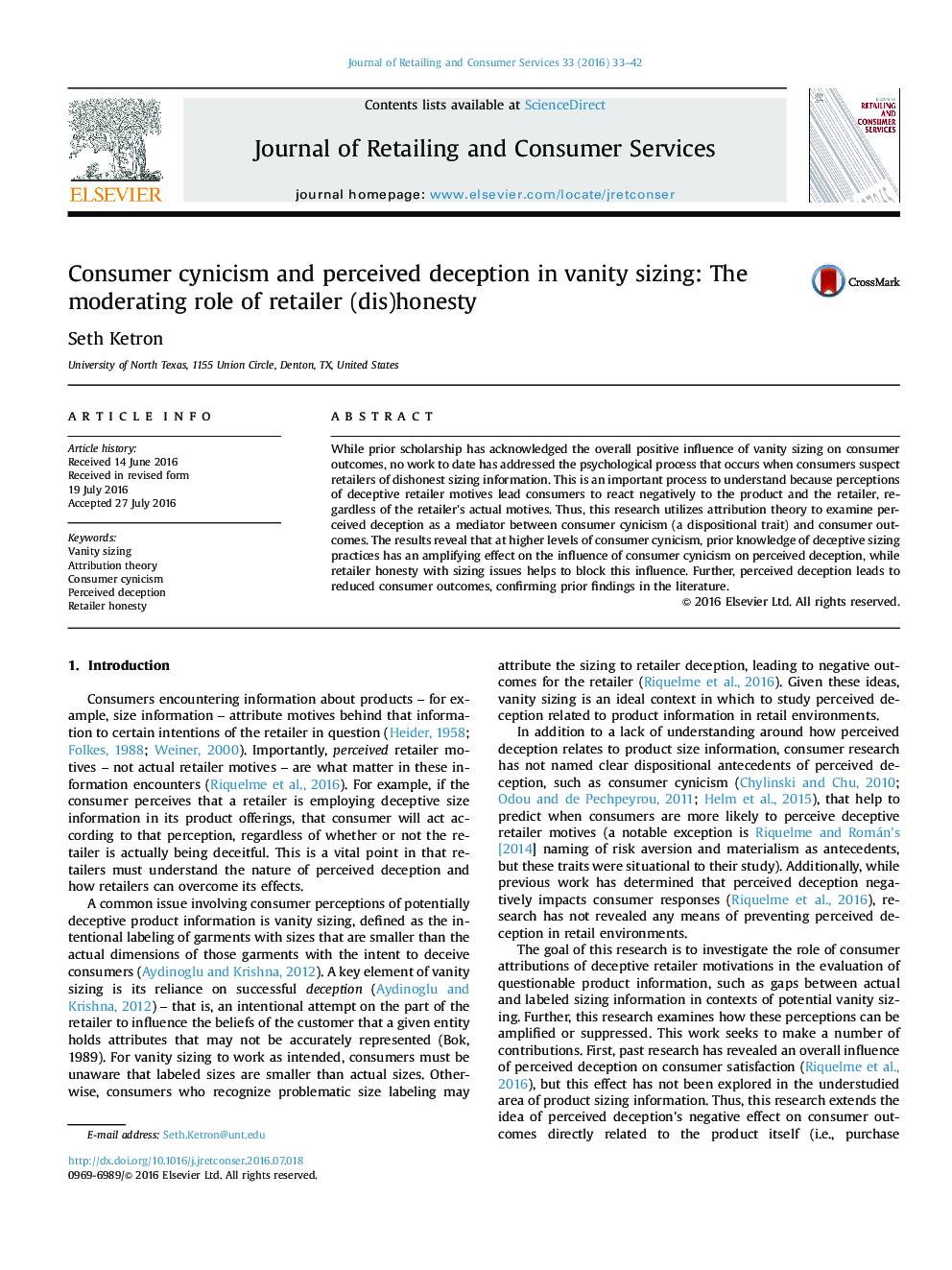| Article ID | Journal | Published Year | Pages | File Type |
|---|---|---|---|---|
| 1028720 | Journal of Retailing and Consumer Services | 2016 | 10 Pages |
While prior scholarship has acknowledged the overall positive influence of vanity sizing on consumer outcomes, no work to date has addressed the psychological process that occurs when consumers suspect retailers of dishonest sizing information. This is an important process to understand because perceptions of deceptive retailer motives lead consumers to react negatively to the product and the retailer, regardless of the retailer's actual motives. Thus, this research utilizes attribution theory to examine perceived deception as a mediator between consumer cynicism (a dispositional trait) and consumer outcomes. The results reveal that at higher levels of consumer cynicism, prior knowledge of deceptive sizing practices has an amplifying effect on the influence of consumer cynicism on perceived deception, while retailer honesty with sizing issues helps to block this influence. Further, perceived deception leads to reduced consumer outcomes, confirming prior findings in the literature.
